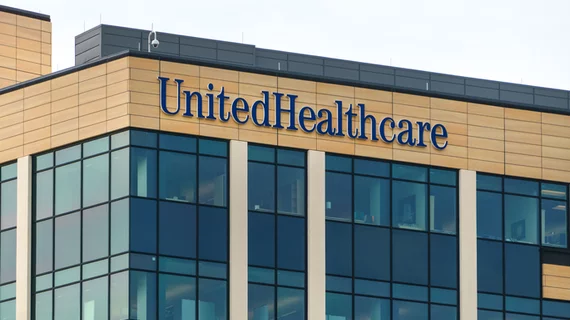UnitedHealthcare’s revised CT payment policy ‘threatens’ the patient-physician relationship, advocates warn
Recent revisions to UnitedHealthcare’s coverage policies “threaten” the patient-physician relationship, imaging advocates warned Wednesday.
The nation’s largest commercial insurer—covering some 70 million Americans—first implemented the change back in April. It labels coronary CT angiograms as the “first-line test” to evaluate members with stable chest pain in members at low or intermediate risk for coronary artery disease.
However, UHC noted that this switch would replace other functional stress tests, such as PET or echocardiogram. Providers who want to deliver such exams are now subject to prior authorization, the American Society of Nuclear Cardiology alerts its members in a Nov. 11 news update.
In a letter to the Minnesota-based payer earlier this month, ASNC urged UnitedHealthcare to rethink its decision.
“The cornerstone of the patient-physician relationship is based on shared decision-making; that is, to make the decision for the right test or treatment at the right time based on sound clinical judgement and honest discussions with patients about risks and benefits,” wrote President Sharmila Dorbala, MD, an associate professor of radiology at Harvard. “UHC’s policy threatens that relationship. As written, the policy misleads providers to believe CTA is in all cases a clinically better test, an implication that could spill over into other patient populations.”
Both the ASNC and American College of Cardiology “expressed concern” to the insurer earlier this year that the document could be interpreted as restricting access. And UHC leadership responded by noting that its new policy would support computed tomography angiography “where it is appropriate without mandating practice changes,” ASNC noted.
“Despite those assurances, UHC maintains the position that CTA is expected to replace the need for other functional stress testing to evaluate stable chest pain in individuals with low and intermediate risk for [coronary artery disease],” Dorbala and colleagues advised. “In fact, UHC’s CCTA-first policy in this patient population ignores the well-established role of functional imaging as a first-line test in populations when CTA cannot or should not be performed.”
You can read the rest of the letter to UnitedHealthcare leadership here. ASCN also recently voiced opposition to imaging payment policies changes announced by Humana.

